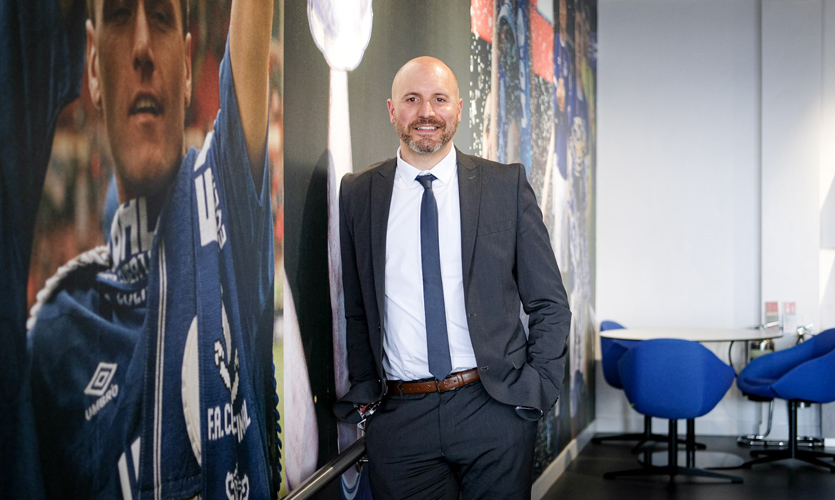Michael Salla

Michael is an alum of LJMU, having completed his undergraduate studies in sport science and postgraduate studies in public health. Today he is the Deputy CEO of Everton in the Community, Everton Football Club’s charitable arm that tackles issues through social intervention across Merseyside. It creates life-changing opportunities for some of the most vulnerable and underprivileged communities that surround the football club’s stadium.
The charity’s own values closely align with that of the university, and Everton remain a key partner of LJMU, offering placements to students among other collaborations, alongside local rivals Liverpool Football Club.
Michael has worked for the charity for more than a decade and as Deputy CEO works closely with charity Directors and the Board of Trustees to continue to grow and develop the club’s charitable impact, with a particular focus moving forwards on the many opportunities presented by the Goodison Park Legacy once the club moves to its new stadium on Bramley-Moore Dock.
Michael features in our ‘Humans of LJMU’ series in collaboration with the ‘Humans of Liverpool’ social media account, sharing the stories of the people who make our city, communities and university the vibrant, inclusive place it is in celebration of our bicentenary year.
“I always wanted to be in a job where I make a difference and I definitely have that here at Everton in the Community. I see every day the difference we’re making in terms of the people we support”
– Michael Salla

Michael’s ‘Humans of LJMU’ interview
“I always wanted to be in a job where I make a difference and I definitely have that here at Everton in the Community. I see every day the difference we’re making in terms of the people we support. Some join us through our homelessness programmes, then over the months you see them completely transform, gaining qualifications, accommodation and moving into employment. Some then become staff themselves, which is amazing because they then provide that lived experience and can say “I’ve walked a similar path as you, you can do it”.
“We use sport as a form of therapy, bringing together likeminded people that can support each other. Maybe they’ve been in the military, and after returning home they feel isolated and lost. That like-mindedness helps them grow together and get that camaraderie back. It’s not just about football; our service users also do Nordic walking, origami and a whole range of different things. Focusing on an activity means there’s not as much pressure to talk. After months of being in that environment, they then might feel comfortable to open up in that safe space. They’re happy to tell their story and reach out for support.
“The players involvement can really help in that process too. If we’re doing something around mental health and they openly say that they’ve struggled, it allows others to feel more open about sharing their own experiences. Having the players as role models is brilliant for Evertonians - one second, they’re watching them on the pitch, the next they’re stood next to them getting involved in a group session.
“We are committed to supporting people in the L4 area but we deliver in about 150 different locations across the city region; anywhere we feel we can support that local population and providing services on people’s doorstep. When the club move stadium, that huge footprint of Goodison Park will be transformed into a campus including a health zone, green space, housing, a GP practice and office spaces for various partners. It will be a huge site to help improve the health and education of local people, helping us to continue to support our community.”
